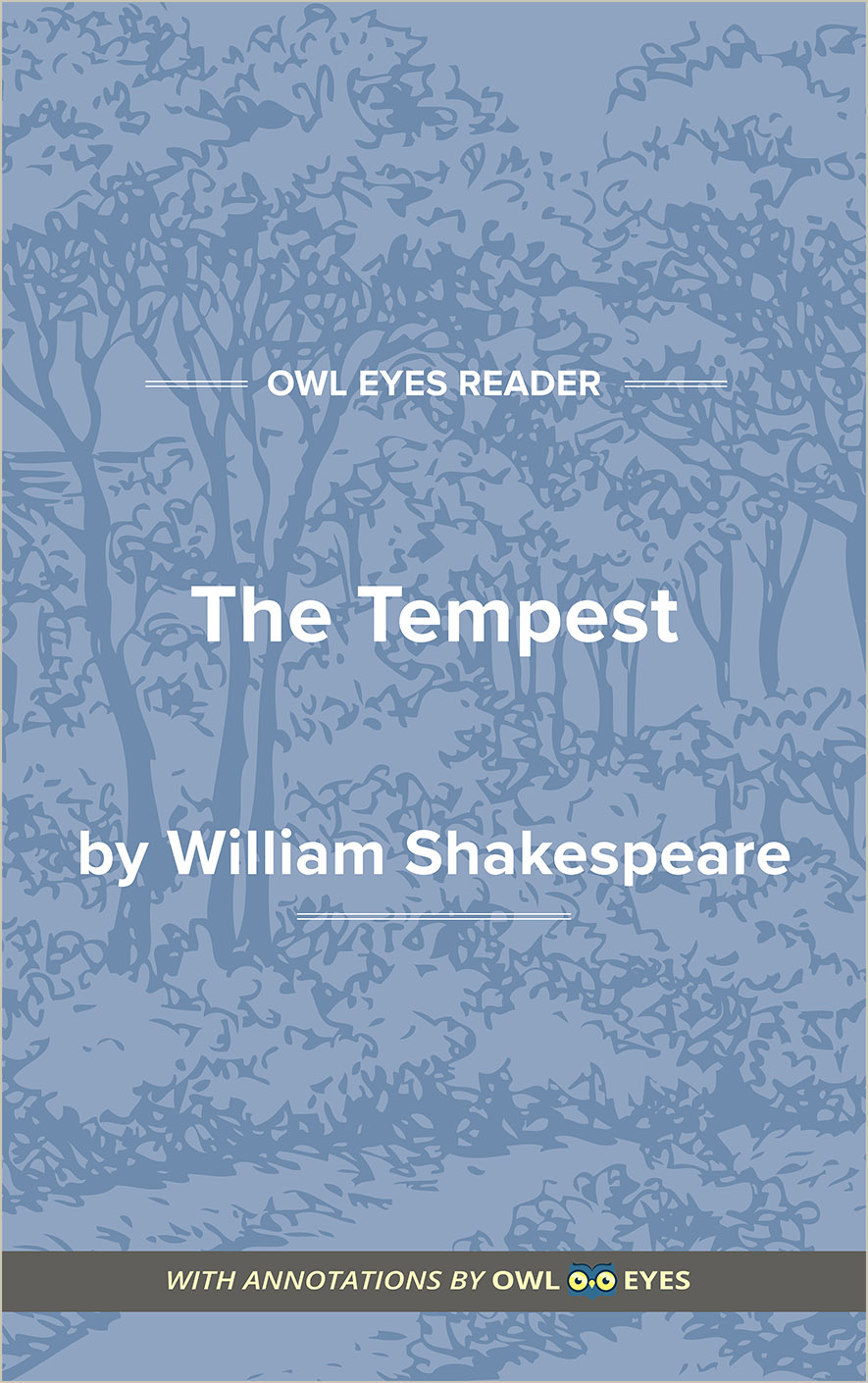Analysis Pages
Themes in The Tempest
Themes Examples in The Tempest:
Act I - Scene I
🔒"Stand fast, good Fate, to his hanging...." See in text (Act I - Scene I)
"What cares these roarers for the name of the king?..." See in text (Act I - Scene I)
Act I - Scene II
🔒"You taught me language, and my profit on't Is I know how to curse...." See in text (Act I - Scene II)
"Full fathom five thy father lies. Of his bones are coral made; Those are pearls that were his eyes;(470) Nothing of him that doth fade But doth suffer a sea-change Into something rich and strange. Sea-nymphs hourly ring his knell:..." See in text (Act I - Scene II)
Act II - Scene I
🔒"Whereof what's past is prologue; what to come In yours and my discharge..." See in text (Act II - Scene I)
"I'th’ commonwealth I would by contraries Execute all things..." See in text (Act II - Scene I)
"Twenty consciences That stand ’twixt me and Milan, candied be they(320) And melt ere they molest!..." See in text (Act II - Scene I)
Act II - Scene II
🔒"A most ridiculous monster, to make a wonder of a poor drunkard!..." See in text (Act II - Scene II)
"Misery acquaints a man with strange bedfellows...." See in text (Act II - Scene II)
"If I can recover him and keep him tame and get to Naples with him, he's a present for any emperor that ever trod on neat's leather...." See in text (Act II - Scene II)
"There(30) would this monster make a man. Any strange beast there makes a man...." See in text (Act II - Scene II)
Act III - Scene I
🔒"There be some sports are painful, and their labour Delight in them sets off. Some kinds of baseness, Are nobly undergone, and most poor matters Point to rich ends. ..." See in text (Act III - Scene I)
"I'll to my book, For yet ere supper-time must I perform Much business appertaining...." See in text (Act III - Scene I)
Act III - Scene II
🔒"Be not afeard. The isle is full of noises, Sounds and sweet airs, that give delight and hurt not...." See in text (Act III - Scene II)
"Give me thy hand. I am sorry I beat thee; but, while thou liv'st, keep a good tongue in thy head...." See in text (Act III - Scene II)
Act IV
🔒"A devil, a born devil, on whose nature..." See in text (Act IV)
"Go, charge my goblins that they grind their(280) joints With dry convulsions, shorten up their sinews, With aged cramps, and more pinch-spotted make them Than pard or cat o'mountain...." See in text (Act IV)
"We are such stuff As dreams are made on, and our little life(175) Is rounded with a sleep...." See in text (Act IV)
Act V
🔒"This thing of darkness I(320) Acknowledge mine...." See in text (Act V)
"O rejoice Beyond a common joy! And set it down(240) With gold on lasting pillars: in one voyage Did Claribel her husband find at Tunis, And Ferdinand, her brother, found a wife Where he himself was lost; Prospero his dukedom In a poor isle; and all of ourselves,(245) When no man was his own..." See in text (Act V)
"O brave new world That has such people in't!..." See in text (Act V)
"I'll break my staff, Bury it certain fathoms in the earth,(60) And deeper than did ever plummet sound I'll drown my book...." See in text (Act V)
"The rarer action is In virtue than in vengeance...." See in text (Act V)
"Mine would, sir, were I human. ..." See in text (Act V)
Epilogue
🔒"Now my charms are all o'erthrown, And what strength I have's mine own, Which is most faint...." See in text (Epilogue)

